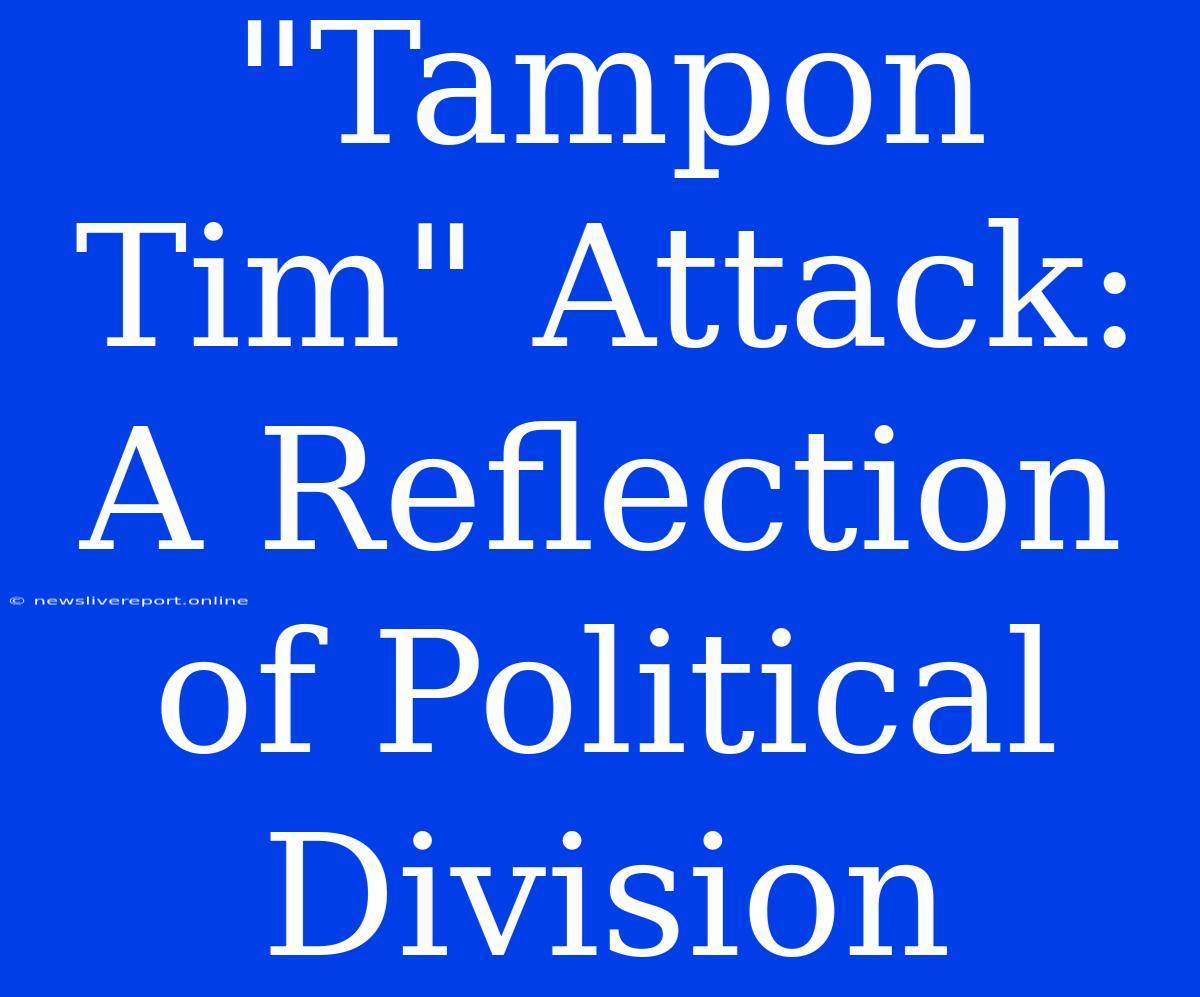"Tampon Tim" Attack: A Reflection of Political Division
The recent "tampon team" attack, a disturbing incident where a group of individuals targeted a rival political party's headquarters with menstrual products, has sparked widespread outrage and ignited conversations about the concerning levels of political division in our society. This seemingly frivolous act, however, carries a deeper meaning, revealing a disturbing trend of dehumanization and the normalization of violence within the political sphere.
A Symbol of Misogyny and Disrespect
The use of tampons as a weapon, often associated with menstruation and feminine hygiene, serves as a stark reminder of the persistent misogyny and disrespect towards women within our political landscape. By targeting a political party with items traditionally considered feminine, the perpetrators are attempting to undermine and belittle their opponents, reducing them to stereotypes and reinforcing outdated gender roles.
Fueling the Fire of Polarization
This attack is not an isolated incident. It is a symptom of a larger trend of political polarization, where differing viewpoints are increasingly met with hostility, disrespect, and even violence. This toxic environment discourages civil discourse and promotes a culture of division and animosity, making it increasingly difficult to find common ground and engage in constructive dialogue.
The Impact on Public Discourse
The "tampon team" attack has a chilling effect on public discourse. It creates a climate of fear and intimidation, discouraging individuals from expressing their opinions or engaging in open debate. This silencing of dissent further fuels the cycle of polarization, as individuals become more entrenched in their own echo chambers, devoid of opposing viewpoints.
Moving Forward: A Call for Unity and Respect
The "tampon team" attack should serve as a wake-up call. It is a reminder of the urgent need to foster a culture of respect and understanding in our political arena. We must actively combat the forces of division and strive for a more inclusive and tolerant society. This can be achieved by:
- Promoting respectful dialogue: Encourage civil discourse and open communication, even when opinions differ.
- Challenging harmful stereotypes: Actively counter misogynistic and sexist narratives that perpetuate harmful gender roles.
- Encouraging empathy and understanding: Promote a culture of empathy and understanding for diverse perspectives and experiences.
It is crucial to remember that political differences should not be met with aggression or violence. By rejecting the normalization of such behavior, we can work towards a future where political discourse is characterized by respect, understanding, and a commitment to finding common ground.

